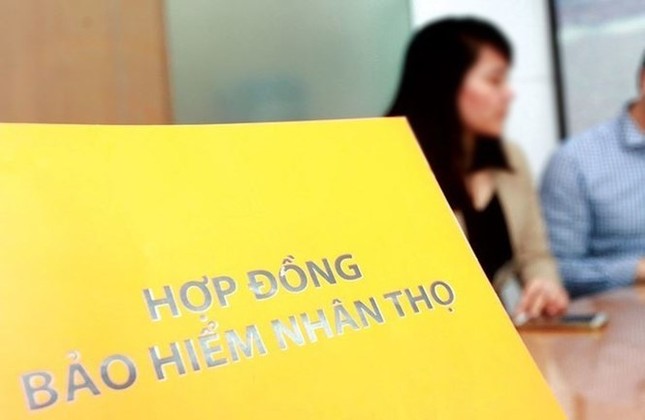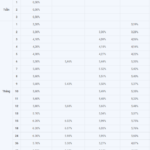The State Bank is drafting Decree 88 on administrative sanctions in the field of currency and banking.
Accordingly, the State Bank stipulates a fine of VND 400-500 million if banks attach non-mandatory insurance products to the provision of banking products and services in any form. This penalty is added to comply with the Law on Credit Institutions, which will take effect from the beginning of July 2024.
The new sanctioning regime in the banking sector comes after a series of complaints from people who said they were forced to buy life insurance when borrowing money over the past time. Many borrowers have accepted to buy life insurance (a high-value insurance product with long-term premiums) to get disbursed.

Adding sanctions to prevent banks from “forcing” customers to buy non-mandatory insurance for loans.
Talking to Tien Phong newspaper, Mr. Nguyen Quang Huy – Finance expert from Nguyen Trai University – said that in the first half of this year, there were still feedbacks that customers had to participate in insurance packages to get loan disbursements. The reason is that investment-linked insurance products are offered very high commissions by insurance companies, with some agencies paying more than 100% to partners, causing banks to disregard the rules.
Also according to Mr. Huy, although the law has strictly prohibited this practice, banks have the advantage of “holding the handle”, and customers still need them, so they have no choice but to participate. Many banks are also under pressure to recover revenues to meet the agreements they have signed with insurance companies.
If the target is not reached, the bank must refund the pre-paid expenses to the insurance company. Therefore, bank employees have to come up with new “tricks”, such as asking relatives to stand as buyers or offering interest rate incentives of 1-2%/year if the customer agrees to buy insurance, so that customers “voluntarily” agree. Bank employees themselves also admit that the pressure of targets makes them have to suggest that customers participate in insurance.
“The proposal of the sanctioning level adds a tool to prevent the act of forcing customers to buy insurance for loans. This is beneficial for customers. This is an important step in protecting customer rights, ensuring transparency in banking activities and rebuilding trust in the financial market.”
With strong sanctions, the situation of forcing customers to buy non-mandatory insurance is expected to be soon controlled, contributing to the construction of a healthy and sustainable business environment. It’s time for insurance and banking to “go their separate ways” to regain the trust of the people,” said Mr. Huy.
Previously, Circular 67 guiding the Law on Insurance Business, issued by the Ministry of Finance at the end of last year, also prohibited banks from selling linked insurance products (a form of life insurance) within 60 days before and after the full disbursement of the loan.
The period from 2014 to 2023 is considered the “golden period” for the development of cross-selling insurance at banks, with a very rapid growth rate. However, since 2023, after a series of controversies such as customers being forced to buy insurance, savings being turned into investment insurance, life insurance, etc., trust in the market has declined, and this business segment has fallen into crisis, with revenues at banks decreasing sharply and remaining gloomy up to now.
A series of problems in this business area have been discovered after inspections by competent authorities, and some serious violations have been revealed, such as agents and bank employees not complying with insurance sales processes, loose premium management, low-quality consulting, and inaccurate customer information collection…
The Secret Commission: How Banks Push Insurance on Unsuspecting Loan Applicants
Financial experts have revealed that, in the first half of this year, there has been feedback regarding customers being required to purchase insurance packages to access loan disbursements. The root cause of this issue lies in the high commissions offered by insurance companies for investment-linked insurance products, with some companies providing commissions exceeding 100% to their partners, leading to this unscrupulous behavior by banks.
The Top-Performing Bank in the Country Raises its Savings Interest Rates Once More
ABBank has announced an official update to its savings interest rates, effective immediately from the 19th of November onwards.
VietinBank Wins Double Annual Report Awards at VLCA 2024
On November 16, 2024, the Joint Stock Commercial Bank for Industry and Trade of Vietnam (VietinBank – stock code: CTG) was honored with two prestigious awards: “Top 10 Enterprises with the Best Annual Report in the Finance Group” and “Outstanding Progress for Annual Report” at the 2024 Listed Companies Awards organized by the Ho Chi Minh City Stock Exchange (HOSE).



















